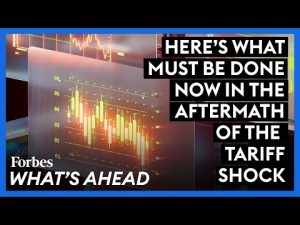**A Clash of Opinions: The Political Theater of Academic Testimony**
In the grand arena of politics, where ideas clash like titans, an unexpected battle has emerged—this time, front and center in a hearing room. The focus? The controversial views of Professor Franks, an academic who has become both a target and a champion in the ongoing debate about free speech and the role of the Supreme Court. This lively spectacle not only showcased the tension between differing political ideologies but also raised eyebrows about the role of personal beliefs in academia.
In a recent hearing, Professor Franks found himself defending his stance that claims of governmental overreach by the Biden Administration are nothing more than a myth. A confident voice amidst a cacophony of disagreement, Franks argued that his judgments are driven by the authority of the Supreme Court rather than personal political leanings. He maintained that the judicial interpretations of the Constitution dictate the narrative, a stance that undoubtedly ruffled some feathers in the back-and-forth of politically charged testimony. For Franks, the heart of the matter lies in his belief that market forces and ideological struggles shape discourse far more than any governmental edict ever could.
However, things took a sharper turn when the furniture of civility was nudged as he faced off against an opposing voice. Questions emerged about whether his academic position had grown clouded by his own liberal views. With accusations of his supposed bias dangling in the air, Franks was pressed to clarify whether his assertions about the Supreme Court’s decisions were influenced by his feelings toward prevalent political figures, notably President Biden and former President Trump. Franks, clearly undeterred, claimed that political passion should not overshadow the academic discussion, even while he was pinned down with references to past statements he made relating to racial dynamics and gender issues.
The questions intensified when past tweets came back to haunt Franks, showcasing some rather provocative remarks. His online presence revealed a penchant for incendiary statements, including a bemusing remark that suggested a majority of Americans harbor deeper feelings against women than in favor of democracy. Critics would argue these words betray a significant bias, while supporters might claim they reflect the passionate criticisms of the systemic issues that plague society. Regardless of the appeal, Franks’ comments veered dangerously close to the line of thoughtful discourse, transforming the empirical into what some might call a melodramatic stand-up routine.
As the audience perched on the edges of their seats, anticipation buzzed. Would Franks emerge unscathed from the barrage of questions? His smirk seemed to convey confidence, yet the specter of personal biases loomed large as he tried to weather the storm. While he maintained that his role as an academic officer remained above reproach, it is evident that emotional responses can cloud even the most scholarly of discussions. It raises a compelling question—how much can one’s political leanings seep into their scholarly work, especially when the stakes are as high as the foundational principles of democracy?
In a world where academic freedom and political discourse often intersect—sometimes violently—Professor Franks has found himself a central figure in a dance of words and perspectives. His testimony serves as a microcosm of the broader societal debate about free speech versus the status quo, a conversation that is sure to continue reverberating in both academic halls and political circles. Whether this particular chapter ends with vindication or fallout remains to be seen, but one thing is clear: the intersection of academia and politics will always remain a riveting stage for those willing to engage in the ideological fray. Who knew that amidst the serious dialogues of the Supreme Court and the Constitution, a little humor could be found in the relentless tug-of-war over beliefs and the bitter truths of human nature?







